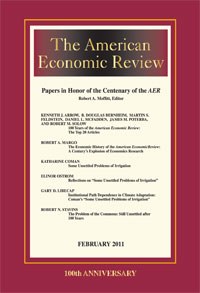
Cohn, A., Engelmann, J., Fehr, E. and Maréchal, M. (2015). Evidence for Countercyclical Risk Aversion: An Experiment with Financial Professionals American Economic Review, 105(2):860--885.
-
Affiliated author
-
Publication year2015
-
JournalAmerican Economic Review
Countercyclical risk aversion can explain major puzzles such as the high volatility of asset prices. Evidence for its existence is, however, scarce because of the host of factors that simultaneously change during financial cycles. We circumvent these problems by priming financial professionals with either a boom or a bust scenario. Subjects primed with a financial bust were substantially more fearful and risk averse than those primed with a boom, suggesting that fear may play an important role in countercyclical risk aversion. The mechanism described here is relevant for theory and may explain self-reinforcing processes that amplify market dynamics.